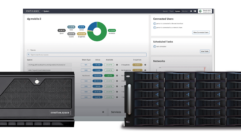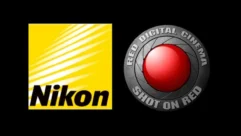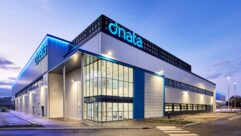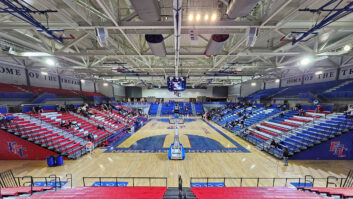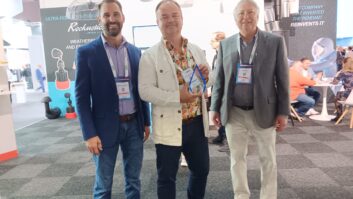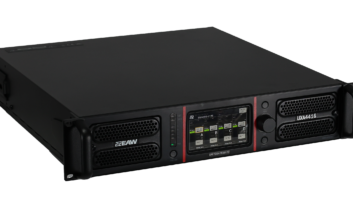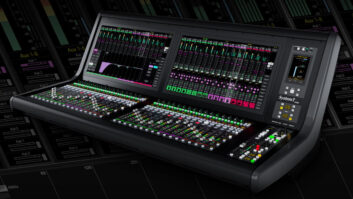
A phrase commonly heard in the event staging industry is “you are only as good as your last show.” This motto originates from the idea that despite having 10, 50, 100, or whatever number of previous successes on a show, people will only remember what happened the last time, especially if there was a problem. Clients expect to experience a perfect show as recognized by the audience. When problems or failures occur, these unfortunate circumstances can make an impression and overshadow any of the other successes. In order to avoid technical issues taking center stage during the event, it is critical for the event producer or planner to work with a staging provider that has a plan in place to deal with any challenges.
Unknown issues on show site can take many forms, such as last minute equipment additions, equipment failures, software incompatibility, crew sickness, or transportation problems, to name a few. While onsite, anything can happen, and no staging company is immune to dealing with technical issues or problems. However, a quality provider will take measures in advance to mitigate the risks on show site, as well as have a solid plan in place to resolve issues as they occur, whether a small problem, or a full blown, code red emergency.
Prior to the show, staging providers should have established systems and processes in place to support any problems or technical issues that may arise during the show. An experienced provider will have standard operating procedures for quality control to avoid equipment issues on show site, such as pre-testing the gear to ensure everything is in working order before it leaves the door, or checking the inventory during packaging to confirm all the necessary parts, pieces and cables are in place and set for delivery. Quality staging companies will also provide backup equipment for items that are mission critical, such as projectors or lighting consoles.
Basically, any measure that can be taken in advance of show site by the staging company to avoid the “what-if” from becoming a reality should be a part of the pre-planning process. Simply put, once the staging company arrives at show site, they are on the client’s dime. On show site, the client takes on the burden of the labor costs and critical schedules need to be followed. Unforeseen issues that could have been easily solved in advance bring bad karma to the show.
It is critical for event producers to do their homework on the front end. They need to educate themselves on what resources the staging company has in place to react to critical issues, and whether they have a plan in place to respond effectively. As I mentioned earlier, a staging company cannot possibly prepare or predict for every single point of failure, but how they respond to challenges can make all the difference. For example, the staging company should provide discipline-specific technicians, such as audio, LED, lighting, or projection specialists, with the experience to identify and resolve technical problems, especially under pressure.
In addition, the staging company should have an established support system in place, such as a 24/7 engineering department, logistics or operational teams on call to assist with onsite support, technical problems, and equipment adds. A company with a dedicated structure in place to handle labor issues such as crew sickness, travel problems, changing schedules, or adding crew positions can also be a serious advantage.
When interviewing a staging company for your next event, ask them specific questions about how they are prepared to handle technical issues, or how they would react in certain situations. A few examples include:
How do you handle last minute equipment additions? This question is particularly important if the staging company does not have an office equipped with inventory close to the venue. It’s important they have a plan in place to acquire any time-sensitive equipment requests.
What measures do you have in place to ensure quality control? Ask the provider about their internal processes to test, maintain and package their gear prior to arriving at show site.
Does the company own the gear or cross rent? It can be difficult to control the quality of the equipment if the staging company will be cross renting the majority of the gear for your show.
What systems are in place to provide emergency support on show site after hours, such as an equipment failures? Find out if the provider has any 24/7 support and more importantly, what they are capable of accomplishing after hours to provide assistance in critical matters.
What is the experience of the onsite team? The technicians are on the front lines when an issue occurs, and it is critical to have a team in place that has the appropriate discipline-specific training to resolve technical problems. Ask about the training in place for provided technicians, and whether the company invests in an ongoing program to ensure you are receiving the best technical support for your show.
A great way to measure the success of a company is to determine how well they react to challenges. Whether something arises or not, the goal is to always deliver a flawless show, and provide the client with a success story that will be remembered by the audience for the message and experience. You may not be able to predict every outcome, but you can have a team in place with a plan on how to react and handle the unexpected, with the approach and attitude that “failure is not an option.” When a critical issues arises, you want to have a staging company in place that you can trust to do whatever it takes to resolve the situation and still deliver a great show. Choose wisely and be prepared.
Les Goldberg founded LMG, LLC, a national provider of video, audio, lighting and LED support in 1984 with a small loan from a relative. He also acts as CEO of Entertainment Technology Partners, LLC, the parent company of a collection of exceptional brands within the live event and entertainment technology services industry. For more information, visit www.lmg.net and www.lesgoldberg.com.


